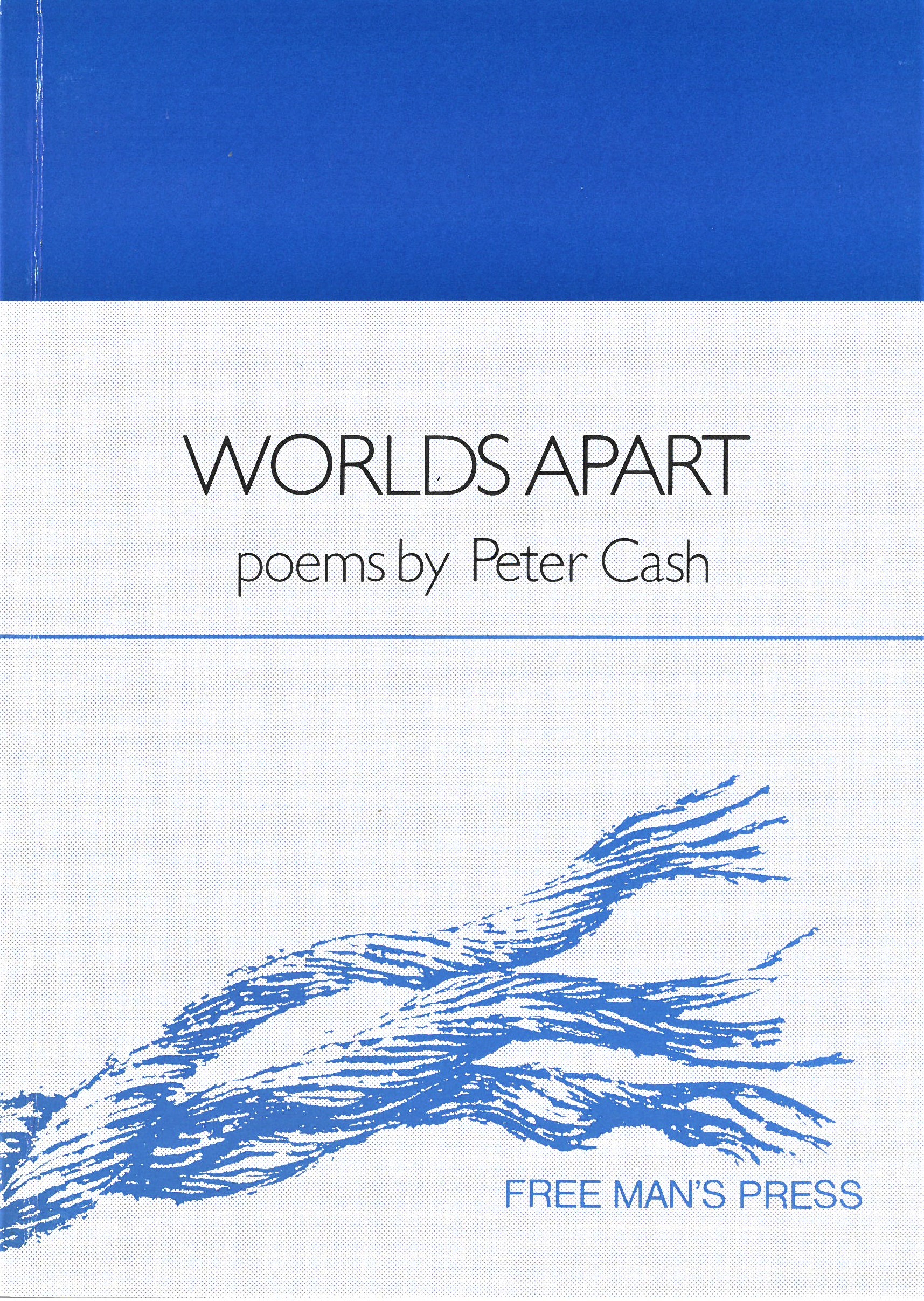£4.50
This book, Peter Cash’s third collection, is in two distinct sections.
Written for his close friend Paula Moore, Worlds Apart itself has an epigraph by Robert Graves which prepares readers ominously for the sequence of poems to come:
“My main theme was always the practical impossibility, transcended only by a belief in miracle, of absolute love continuing between man and woman.”
Robert Graves
Throughout a sequence of 24 poems, he unrolls a fictional narrative in which two lovers – lost against the starkness of a northern landscape – mount a heroic endeavour to overcome the problem of emotional/spiritual separateness to which their physical togetherness has exposed them. It is a narrative informed by D.H. Lawrence’s concept – reiterated by Graves – that ‘man and woman’ live in different worlds, spinning on separate axes which can rarely, if ever, be synchronised.
Change of Time was published in LINCOLNSHIRE WRITERS 13 (Autumn 1972).
In Bird Songs, the birds in his mother’s back garden in Lincolnshire live too in their own world, a world apart. All twelve sing their own songs, beautifully innocent and independent of human expectations and hopes for them.
Cormorants (not set in a back garden!) won a prize in the Lancaster Literature Festival Poetry Competition 1983.
BARN STORM Snow piles against the blackened barns, even blocking entrances through which the cats can squeeze. Incessant is the knocking as the hard wind, having travelled miles, tries to wheedle through cracks in creosoted wood that seep an amber glue. The straw-bales freeze. Staring through a threatened window that the hoar-frost fringes for the fourteenth day, I envisage deeper winters when these barns have been laid low, their planks reduced to splinters, their cross-beams bent in two – when, instead of this great house, heaving on its hinges, its yellow panes aglow, there are piles of snow.
BLACKBIRDS No matter when I glance out of my window, one or other of them hops off an ornamental fence or over mossy grass in which mauve crocus grow. He stops short of the path that stiff winds sweep: among the vernal bric-à-brac of branchlets and brown leaves, he broggles with his orange beak; he has a knack of knowing where the vilest worms ooze out. Purple smoke begins to pother past the patch of moss that they unstitch. They hesitate, consult each other, then set off their series of incensed alarms to which the gardener is wise; he forks a further bundle on his bonfire and bids them brusque goodbyes ... Later, though, they’re back: so that I seek to formalise in words my quiet admiration for the loyalty of these ubiquitous birds.


